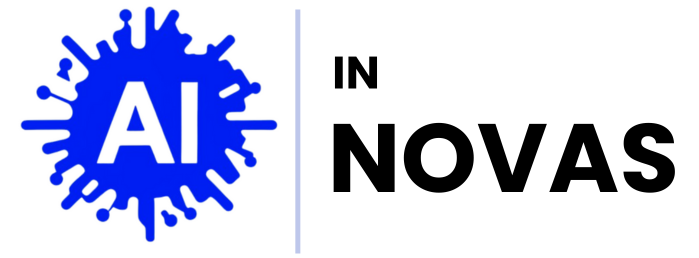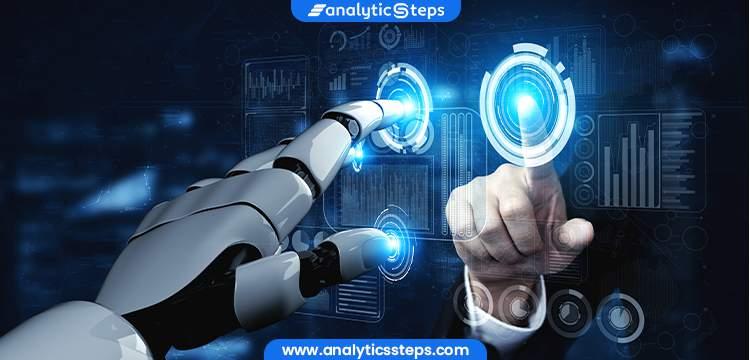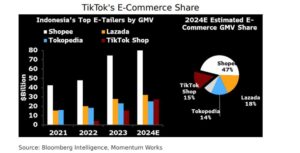In an era where technology evolves at an unprecedented pace, artificial intelligence (AI) stands at the forefront of innovation, reshaping industries, enhancing daily life, and challenging our understanding of what machines can achieve. As we embark on this exciting journey into the latest AI news and advancements, we will explore groundbreaking developments that are transforming the landscape—from revolutionary algorithms to ethical considerations surrounding AI’s integration into society. Join us as we unveil the future and dive deep into the innovations that are not only defining the present but also paving the way for a smarter, more connected world. Whether you’re a tech enthusiast, a business leader, or simply curious about the potential of AI, this article promises to provide valuable insights into the trends and breakthroughs that are influencing our lives today.
# Emerging Trends in AI: Key Developments Reshaping the Industry
The **artificial intelligence (AI)** landscape is evolving at an unprecedented pace, characterized by breakthroughs that revolutionize various sectors. As we delve into the emerging trends in AI, it becomes clear that technological advancements are not just shaping industry practices; they are also redefining our future in profound ways. From advancements in **natural language processing (NLP)** to innovations in machine learning algorithms, let’s explore the key developments that are currently reshaping the AI industry.
## 1. Natural Language Processing Enhancements
Natural language processing has seen remarkable progress. Models such as **OpenAI’s GPT-4** and similar technologies have excelled in understanding and generating human language, bridging the gap between human communication and machine comprehension. This has led to several crucial advancements:
– **Context Understanding**: Newer NLP models can grasp the context of conversations better than ever, allowing for nuanced dialogue and more accurate responses.
– **Content Generation**: AI can now produce high-quality text content, making it a valuable tool in content creation, marketing, and customer interaction.
– **Sentiment Analysis**: Organizations are capitalizing on NLP for advanced sentiment analysis, enabling them to gauge customer opinions and preferences more effectively.
## 2. AI and Machine Learning Integration
The integration of AI with various machine learning techniques is another pivotal trend reshaping the industry. Here, we see a trend where sophisticated algorithms improve predictive analytics, enhancing decision-making processes across industries:
– **Predictive Maintenance**: In manufacturing, AI-driven predictive maintenance minimizes downtime by foreseeing equipment failures before they occur.
– **Personalization**: E-commerce platforms are leveraging AI to deliver personalized shopping experiences based on user behavior and preferences.
– **Financial Forecasting**: The finance sector utilizes machine learning algorithms for better risk assessment and investment strategies, optimizing profit margins.
## 3. Societal Impact and AI Ethics
As AI becomes more prevalent, discourse surrounding **ethical AI** is gaining momentum. This encompasses a range of societal considerations:
– **Bias Mitigation**: Developers are increasingly aware of the need to eliminate biases in AI algorithms, ensuring fair representation across diverse populations.
– **Transparency**: Companies are striving for transparency in AI systems, fostering trust among consumers and stakeholders.
– **Accountability**: The establishment of regulatory frameworks and ethical guidelines is becoming essential to govern AI’s deployment responsibly.
## 4. AI in Automation and Robotics
The deployment of AI in automation and robotics is reshaping the workforce dynamics and operational efficiencies. Key trends include:
– **Collaborative Robots (Cobots)**: These robots work alongside humans in various environments, enhancing productivity without replacing the human workforce.
– **Supply Chain Optimization**: AI is streamlining supply chain processes, improving logistics, inventory management, and demand forecasting.
– **Healthcare Innovations**: From robotic surgeries to AI-driven diagnostics, the healthcare sector is witnessing transformative enhancements through automation.
## 5. Quantum Computing and AI Synergy
The intersection of **quantum computing and AI** represents a frontier full of potential. Quantum algorithms can process data at unparalleled speeds, which could revolutionize AI training and execution. Key areas of impact include:
– **Complex Problem Solving**: Quantum computing could tackle problems previously deemed infeasible for classical computers, such as complex optimizations and simulations.
– **New AI Algorithms**: Research is underway to develop AI algorithms specifically designed for quantum environments, heralding a new era of computational capabilities.
## Key Takeaways
– The **AI industry** is undergoing rapid transformation driven by innovations in NLP, machine learning, automation, and quantum computing.
– Ethical considerations are an integral part of AI’s evolution, influencing how technologies are developed and deployed.
– The impact of AI extends beyond technology; it touches on societal and economic elements, necessitating a multi-faceted approach in its integration.
The developments explored here underscore a dynamic future where AI continues to redefine industry standards and human interaction. Looking ahead, the implications of **Nobel Recognition in AI** will invite further reflection on the future of research and innovation in this exciting field. Stay tuned for the next section where we delve into the significance of recent **Nobel prizes awarded in AI**, exploring their potential implications on the future landscape of artificial intelligence research. # Nobel Recognition in AI: Implications for Future Research and Innovation
The recent **Nobel recognition in Artificial Intelligence (AI)** marks a pivotal moment in the ongoing evolution of the field. Traditionally reserved for fields like **literature**, **peace**, or **medicine**, the acknowledgment of AI signifies not just an academic honor, but the potential for transformative shifts in **research** and **innovation** globally. This section explores the implications of such recognition, focusing on its potential to stimulate further exploration, fund new ventures, and legitimize the ongoing advancements in AI technology.
## The Significance of Nobel Recognition
Nobel prizes carry tremendous weight, signifying groundbreaking achievements that can affect **societal structure** and **scientific paradigms**. The recent awarding of a Nobel Prize in the field of AI serves several crucial functions:
– **Legitimization of AI Research**: Researchers in the field now find themselves with a heightened credibility and acknowledgment. This accolade brings attention and respect to ongoing AI projects and encourages universities and private enterprises to invest more heavily in cutting-edge research.
– **Catalyst for Funding**: The acknowledgement of AI as a recipient of a Nobel Prize may lead to increased funding opportunities. Investors, both public and private, might feel incentivized to finance initiatives in AI, which could accelerate innovation.
– **Global Collaboration**: The recognition can foster collaboration across academia, industry, and governments worldwide. When eminent organizations come together to explore AI advancements, we can expect a surge in collaborations aimed at tackling complex global challenges.
## Implications for Future Research
The Nobel recognition is more than just a badge of honor; it acts as a **catalyst for future research** in several profound ways:
### 1. **Interdisciplinary Approaches**
As AI continues to integrate into various fields—such as **healthcare**, **engineering**, and **economics**—the Nobel acknowledgment encourages interdisciplinary research. Researchers will now have greater motivation to incorporate AI in fields previously considered unrelated. For example:
– **Healthcare**: Using AI for predictive analytics in patient care.
– **Environmental Science**: Optimizing resource use through AI algorithms.
### 2. **Shift in Research Focus**
With the recognition, there may be a shift in research priorities. Emerging areas that were previously sidelined could gain traction, including:
– **Ethics of AI**: Considering the moral implications of AI technologies.
– **Regulations and Policy Making**: Delving into how governance can balance innovation with social accountability.
### 3. **Innovation in AI Frameworks and Models**
The recognition is likely to catalyze the development of new AI models. Researchers may explore:
– **More efficient algorithms**: That reduce resource consumption while maintaining or enhancing performance.
– **Human-AI collaboration**: Investigating how AI can augment human capabilities.
## Potential Impact on Innovation
Along with the implications for research, the Nobel recognition also sets a stage for exciting **innovations**. The future may see:
– **AI-Driven Solutions**: Greater emphasis on real-world problem-solving applications. For instance, AI in climate modeling, smart city designs, and healthcare diagnostics.
– **Robust Startups**: An influx of **startups** focusing on niche AI technologies, buoyed by new investment capital.
– **Increased Public Engagement**: As awareness grows, we may witness more public interest in AI, leading to increased acceptance and ethical consideration of AI technologies.
### Key Takeaways
– **Nobel recognition enhances the legitimacy of AI research**, encouraging investment and collaboration.
– **Funding for interdisciplinary research is likely to rise**, focusing on innovative applications across various sectors.
– **The potential for groundbreaking advancements is significant**, especially in AI frameworks and real-world applications.
## Frequently Asked Questions (FAQs)
**Q1: Why is Nobel recognition in AI important?**
**A1:** It legitimizes the field, attracts funding, and encourages interdisciplinary research and collaboration, ultimately accelerating growth and innovation.
**Q2: How might future research change after this recognition?**
**A2:** There may be a shift towards addressing the ethical implications and regulations of AI while also encouraging research in previously undervalued areas.
**Q3: What are some potential innovations we might see?**
**A3:** Expect to see AI-driven solutions addressing global challenges, new startup ventures in niche technologies, and a greater focus on human-AI collaboration.
As we explore these implications in-depth, it becomes evident that the Nobel recognition in AI is not merely an accolade; it marks the beginning of a new era in research and innovation. In the following section, we will delve into **AI in Everyday Life**, examining how these advancements in research have practical applications and profound impacts on consumers. ## AI in Everyday Life: Practical Applications and Consumer Impact
Artificial Intelligence (AI) has transitioned from theoretical discourse into a transformative force that impacts various facets of our daily lives. It has become hard to overlook how **_intelligent systems_** are embedded in everyday tools, services, and products, streamlining processes and enhancing the user experience. Here, we delve into some of the most prominent practical applications of AI that resonate with consumers today, exemplifying its wide-ranging influence.
### 1. Smart Personal Assistants
**Virtual assistants**, powered by sophisticated AI algorithms, have revolutionized how individuals manage their time and resources. Tools like **Siri**, **Google Assistant**, and **Alexa** utilize natural language processing (NLP) to understand and respond to user commands. These technologies allow users to:
– **Schedule appointments**
– **Control smart home devices**
– **Search for information actively**
– **Play music or media upon request**
By harnessing machine learning, these assistants become increasingly adept at anticipating the needs and preferences of users, thereby creating a more personalized and efficient utility.
### 2. Enhanced Customer Support through Chatbots
**_Chatbots_** are omnipresent in today’s digital landscape, reducing the demand for human customer service agents while improving response times for users. These AI-driven tools can handle a multitude of customer inquiries ranging from **basic questions** to **complex problem-solving**:
– **24/7 availability** offers uninterrupted services.
– **Quick resolution of routine inquiries** helps enhance customer satisfaction.
– **Integration with CRM systems** allows for personalized customer experiences.
Ultimately, chatbots embody the future of customer interaction, offering swift answers and reducing human error, making businesses more responsive to consumer needs.
### 3. AI in E-Commerce and Retail
In the realm of **e-commerce**, AI plays a crucial role in revolutionizing the shopping experience for consumers. From recommendation engines to inventory management, it transforms how businesses operate and how customers shop. Key applications include:
– **Personalized recommendations**: Machine learning algorithms analyze user behavior to suggest products suited to individual preferences, much like Netflix and Spotify do for media.
– **Dynamic pricing**: AI helps retailers adjust pricing based on demand forecasts, ensuring competitive positioning and optimized sales.
– **Inventory optimization**: AI systems predict stock needs, reducing wastage and ensuring product availability.
Such implementations significantly enhance customer retention and sales conversion rates.
### 4. AI in Healthcare Services
The healthcare sector is experiencing an enormous shift due to AI’s introduction. Machine learning algorithms and advanced data analytics help categorize large data pools efficiently. Noteworthy applications include:
– **Predictive analytics** for patient diagnosis, leading to earlier interventions.
– **Robotic surgery** assists surgeons in precision tasks, improving recovery times.
– **Telemedicine innovations** enable remote consultations, making healthcare more accessible.
These advances not only elevate patient care standards but also personalize treatment plans, making healthcare more efficient and effective.
### 5. AI-Enhanced Smart Devices
The concept of smart homes is rapidly becoming a reality, enshrined by **AI-integrated smart devices**. These appliances learn user habits over time, automating routine tasks and improving energy efficiency. Examples include:
– **Smart thermostats**, such as Nest, which adjust temperatures based on user preferences and routines.
– **Smart refrigerators** that track inventory and suggest recipes based on available ingredients.
AI fosters a quality of life improvement that is both convenient and sustainable.
### Key Takeaways
– AI permeates everyday life through **virtual assistants**, **chatbots**, and **smart devices**.
– Its applications in **e-commerce**, **healthcare**, and **retail** are revolutionizing traditional paradigms.
– By utilizing data analytics and machine learning, AI enhances **efficiency**, **personalization**, and **user satisfaction** across industries.
### FAQs
**Q: How does AI enhance customer service?**
A: AI enhances customer service mainly through **chatbots** and automated support systems, providing timely responses and personalized assistance.
**Q: What are some common AI applications in retail?**
A: In retail, common AI applications include **recommendation engines**, **dynamic pricing**, and **inventory management systems**.
**Q: Can AI affect healthcare positively?**
A: Yes, AI positively influences healthcare through predictive analytics, robotic surgery, and telemedicine, leading to improved patient outcomes.
As AI continues to embed itself into everyday life, it brings forth essential **ethical considerations**. The implications of increased reliance on intelligent systems necessitate a closer examination of the moral landscape surrounding AI. In the next section, we will investigate these ethical challenges and how they may shape the future trajectory of AI advancements. ## Ethical Considerations in AI Advancements: Navigating the Moral Landscape
As artificial intelligence (AI) continues its meteoric rise, the ethical considerations surrounding its development and deployment loom larger than ever. The potential for **AI technologies** to enhance human capabilities and societal efficiencies is offset by serious ethical questions that we must address. Are we upholding our moral responsibilities while integrating these powerful tools into our daily lives? This inquiry sparks a dialogue about the **moral landscape** inherent in AI advancements.
### Key Ethical Issues in AI
1. **Bias and Discrimination**
– **AI biases** arise when algorithms reflect the prejudices present in the training data. For instance, if historical data contains gender or racial biases, the AI system may perpetuate these biases in decision-making processes, such as hiring or law enforcement.
– The consequences are profound, often leading to **unfair treatment** based on race, gender, or socio-economic status.
2. **Privacy Concerns**
– AI’s ability to **process vast amounts of personal data** raises concerns about privacy. As intelligent systems become more pervasive, questions about data ownership and consent become increasingly urgent.
– Users may unknowingly surrender their privacy, exposing sensitive information without realizing the potential risks involved.
3. **Job Displacement**
– With automation becoming more sophisticated, there’s a growing fear of **job loss** due to AI taking over tasks traditionally performed by humans. While technological advancements can lead to new roles, the transition can be painful for those whose jobs are obsoleted.
– This imbalance requires careful navigation to ensure that workers are protected and that adequate training and support are in place.
4. **Accountability and Transparency**
– When a **machine learning system** makes an erroneous decision, as in the case of a faulty medical diagnosis or an unfair loan application, pinpointing responsibility can be difficult. Who is liable—the developer, the data provider, or the AI itself?
– The demand for **algorithmic transparency** is essential to foster trust and accountability in AI systems. Without clear insight into how decisions are made, users may hesitate to embrace AI-driven solutions.
5. **Autonomous Weaponry**
– The application of AI in the military, specifically concerning **autonomous weapons**, poses serious ethical dilemmas. Who is responsible for actions taken by AI in combat scenarios?
– The **potential for loss of human oversight** raises alarms about the morality of allowing machines to make life-and-death decisions.
### The Role of Regulation
To navigate this moral landscape, effective governance and regulation are needed. Key points include:
– **Establishing standards** for ethical AI development, which ensure that algorithms are designed with considerations for fairness, accountability, and transparency.
– Implementing **data protection laws** that secure individual privacy and empower users to control their data.
– Promoting **interdisciplinary collaboration** among technologists, ethicists, and policymakers to create comprehensive frameworks that address emerging ethical dilemmas.
### Key Takeaways
– The ethical implications of **AI advancements** demand urgent attention and proactive strategies from developers, policymakers, and society at large.
– We must seek to create a landscape where AI systems are not only efficient but also equitable, safeguarding human rights while fostering innovation.
– Continuous public dialogue and **engagement** are necessary to ensure that the needs and values of society are reflected in AI development.
### Frequently Asked Questions (FAQs)
**What is AI bias, and why is it a concern?**
AI bias refers to the prejudices ingrained in AI algorithms, often stemming from biased training data. It presents a concern because it can lead to discriminatory outcomes, affecting marginalized groups disproportionately.
**How can companies avoid unethical AI practices?**
Companies can implement ethical guidelines, conduct regular audits for bias and fairness, and engage with diverse stakeholders during the AI development process.
**What role should governments play in regulating AI?**
Governments should legislate standards for ethical AI development, protect citizens’ data rights, and promote inclusive AI practices that address inequalities in society.
In exploring the ethical considerations around artificial intelligence, it’s evident that our choices today will shape the society of tomorrow. With these complex issues at hand, the subsequent section will delve into the ways in which **AI is being integrated into everyday life**, examining the consumer impact and practical applications transforming our world. # Top Resources for Staying Updated on AI News and Insights
In an era where **_artificial intelligence_** (AI) is not just a buzzword but a driving force behind significant innovations, staying abreast of the latest developments has never been more crucial. Whether you are a tech enthusiast, a professional in the field, or simply someone looking to understand how AI impacts our lives, having reliable sources of information can help you navigate this rapidly evolving landscape. The following curated list contains some of the best resources for **_up-to-date AI news_**, insights, and analyses.
## 1. Leading News Websites
### a. [Artificial Intelligence News](https://www.artificialintelligence-news.com/)
This platform specializes in the latest trends, research, and reports from the frontline of the AI tech field. With articles covering everything from breakthroughs in machine learning to industry applications, **_Artificial Intelligence News_** serves as an essential resource for professionals seeking reliable updates.
### b. [The Wall Street Journal – AI Section](https://www.wsj.com/tech/ai)
The WSJ provides comprehensive coverage of AI-related news, including the latest analyses and features on how AI is reshaping various sectors. For those interested in the intersection of economy and technology, their AI section delivers high-quality journalism and insightful commentary.
### c. [Wired – Artificial Intelligence](https://www.wired.com/tag/artificial-intelligence/)
Wired is known for its accessible yet insightful articles on technology, including robust coverage of advancements in AI. By blending **_in-depth analysis_** with engaging storytelling, Wired provides readers with a broad view of how AI impacts everything from health care to everyday consumer products.
## 2. Specialist AI Blogs
### a. [AI Trends](https://www.aitrends.com/)
Dedicated to examining the latest trends and innovations in AI, AI Trends offers a wealth of articles relevant to both industry professionals and those keen on understanding AI’s trajectory. This resource covers numerous dimensions of AI, from business strategies to technology innovations.
### b. [TechCrunch – AI News](https://techcrunch.com/category/artificial-intelligence/)
TechCrunch gives readers cutting-edge news about tech startups and major tech industry movements, particularly regarding AI news. Focused on the business side of AI, it features updates on investments, product launches, and technological advancements that might reshape industries.
## 3. Academic and Research-Focused Platforms
### a. [ScienceDaily – AI News](https://www.sciencedaily.com/news/computers_math/artificial_intelligence/)
For those desiring a more scientific angle on AI developments, ScienceDaily offers extensive coverage of the latest research findings in artificial intelligence and computation. With articles summarizing academic papers and breakthroughs, this is a go-to source for facts and developments in the field.
### b. [USPTO – AI Reports](https://www.uspto.gov/initiatives/artificial-intelligence/artificial-intelligence-reports)
The United States Patent and Trademark Office provides important reports and notices regarding AI policy. This is particularly useful for those interested in the legal and ethical implications of AI technologies as they relate to patents and current regulations.
## 4. Community Forums and Discussions
### a. [Reddit – AI Subreddits](https://www.reddit.com/r/learnmachinelearning/)
Reddit hosts numerous communities where AI professionals and enthusiasts can share insights and news. Subreddits such as r/learnmachinelearning and r/artificial provide discussions, resources, and user-generated content that reflect current trends and experiences in the AI field.
### b. [AI Alignment Forum](https://www.alignmentforum.org/)
Dedicated to exploring the implications of AI safety and ethics, the AI Alignment Forum fosters in-depth discussions and research. It’s an excellent platform for those interested in the philosophical and safety aspects of AI advancements.
## 5. Podcasts and YouTube Channels
### a. **Podcasts**
Podcasts such as **“The AI Alignment Podcast”** and **“Towards Data Science”** delve into various topics surrounding AI, bringing expert opinions, research discussions, and real-world applications right to your ears. They provide a platform for expert interviews that enrich the listener’s understanding of current AI trends.
### b. **YouTube Channels**
Channels like **“Two Minute Papers”** and **“The AI Guy”** simplify complex AI topics into digestible video content. They regularly update their viewers on new research papers and advancements in a visually engaging manner, making information accessible to a broader audience.
## Key Takeaways
– Rely on trusted **_news websites_** for comprehensive coverage of AI developments.
– Explore specialized **_blogs and forums_** for deeper insights and discussions within the community.
– Utilize academic platforms and government resources for a scientific view on AI advancements.
– Engage with podcasts and YouTube channels for convenient and engaging content about AI.
By utilizing these resources, you will ensure that you remain well-informed about **_artificial intelligence_**, its implications, and ongoing developments. As the **_AI landscape continues to evolve rapidly_**, these platforms serve as vital tools for both personal and professional growth in understanding this transformative technology.
Stay tuned as we explore the next segment of this article, which will delve into **_Emerging Trends in AI: Key Developments Reshaping the Industry_**.
As we step into a future increasingly shaped by artificial intelligence, the innovations and breakthroughs detailed in the latest AI news serve as a testament to the relentless pursuit of knowledge and progress within this dynamic field. From transformative technologies reshaping industries to ethical debates that challenge our understanding of intelligence itself, these developments invite us to engage deeply with the implications of AI on our daily lives and society as a whole. As we continue to unveil the intricacies of AI, staying informed and involved is crucial for navigating this ever-evolving landscape. Join us as we embrace the possibilities and responsibilities that come with these advancements, ensuring that we harness the power of AI for a brighter and more equitable future.




